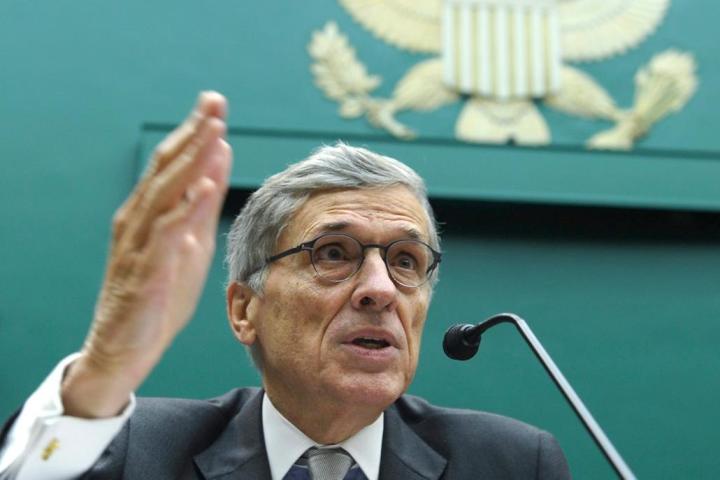
The Federal Communications Commission said Wednesday that it plans to create a new set of “network neutrality” rules that will keep Internet service providers from favoring certain types of traffic.
In a press call, FCC Chairman Tom Wheeler said the agency does not plan to challenge the court ruling in favor of Verizon that effectively killed the FCC’s original set of net neutrality rules – a move that many believe may harm competing services like Netflix. Nor will the FCC reclassify broadband providers as “common carriers,” like telephone service providers, which would give the agency greater authority to regulate ISPs and impose neutrality rules, he said, though an unnamed FCC official tells the Wall Street Journal that reclassification is still a possibility, if necessary.
“Innovators cannot be judged on their own merits if they are unfairly prevented from harnessing the full power of the Internet.”
“In its Verizon v. FCC decision, the United States Court of Appeals for the District of Columbia Circuit invited the Commission to act to preserve a free and open Internet,” Wheeler said in a statement. “I intend to accept that invitation by proposing rules that will meet the court’s test for preventing improper blocking of and discrimination among Internet traffic, ensuring genuine transparency in how Internet Service Providers manage traffic, and enhancing competition.”
Wheeler also said that he met with Los Angeles-based “start-up entrepreneurs who produce video to meet consumers’ growing desire for programming.” These businesspeople “may succeed or … fail depending on whether they are truly creative and innovative,” he said. “But they and other innovators cannot be judged on their own merits if they are unfairly prevented from harnessing the full power of the Internet, which would harm the virtuous cycle of innovation that has benefitted consumers, edge providers, and broadband networks.”
While the new rules go through the rule making process, Wheeler said he expects ISPs to uphold their commitment to the FCC’s 2010 Open Internet Order, which established the original net neutrality rules. Upholding this commitment is “the right and responsible thing to do,” said Wheeler, “and we take them up on their commitment – which will continue to provide protection for the Open Internet until new rules are put in place.”
The FCC will consider new ways to fulfill the “no blocking” rule established in the Internet Order, but shot down by the Verizon ruling. “We will carefully consider how, consistent with the court opinion, we can ensure that edge providers are not unfairly blocked, explicitly or implicitly, from reaching consumers, as well as ensuring that consumers can continue to access any lawful content and services they choose,” Wheeler said.
Finally, the FCC plans to “enforce and enhance” the Internet Order’s “transparency rule,” which requires ISPs to disclose how they manage broadband traffic.
The FCC’s strategy to revive net neutrality has sparked criticism from both sides of the open Internet debate. Republicans in Congress lambasted the plan as an attempt by the Obama administration to impose unnecessary, “harmful” government regulation on Internet service providers. Open Internet advocates, meanwhile, say the plan does not do enough to prevent censorship of free speech.
“No matter how many times the court says ‘no,’ the Obama administration refuses to abandon its furious pursuit of these harmful policies to put government in charge of the Web,” Reps. Fred Upton (R-MI.) and Greg Walden (R-OR) said in a statement (via The Hill).
“These regulations are a solution in search of a problem, and with the many issues on its plate, including implementation of the spectrum incentive auctions, it would be wise for the commission to focus on fostering economic growth, job creation, and competition.”
On the other side of the criticism spectrum, Craig Aaron, president and CEO of Free Press, a non-profit organization that promotes open Internet policies, says that Section 706 of the Telecommunications Act – the law on which the FCC is basing its authority to regulate ISPs – lacks the necessary allowances to protect Internet users from censorship.
“Section 706 doesn’t work for net neutrality or any of the FCC’s stated policy goals,” Aaron said in a statement. “If the agency really wants to stop censorship, discrimination and website blocking, it must reclassify broadband as a telecommunications service under Title II of the Communications Act.”
Updated 2.19.14 with additional comments from critics of the FCC’s net neutrality plans.


